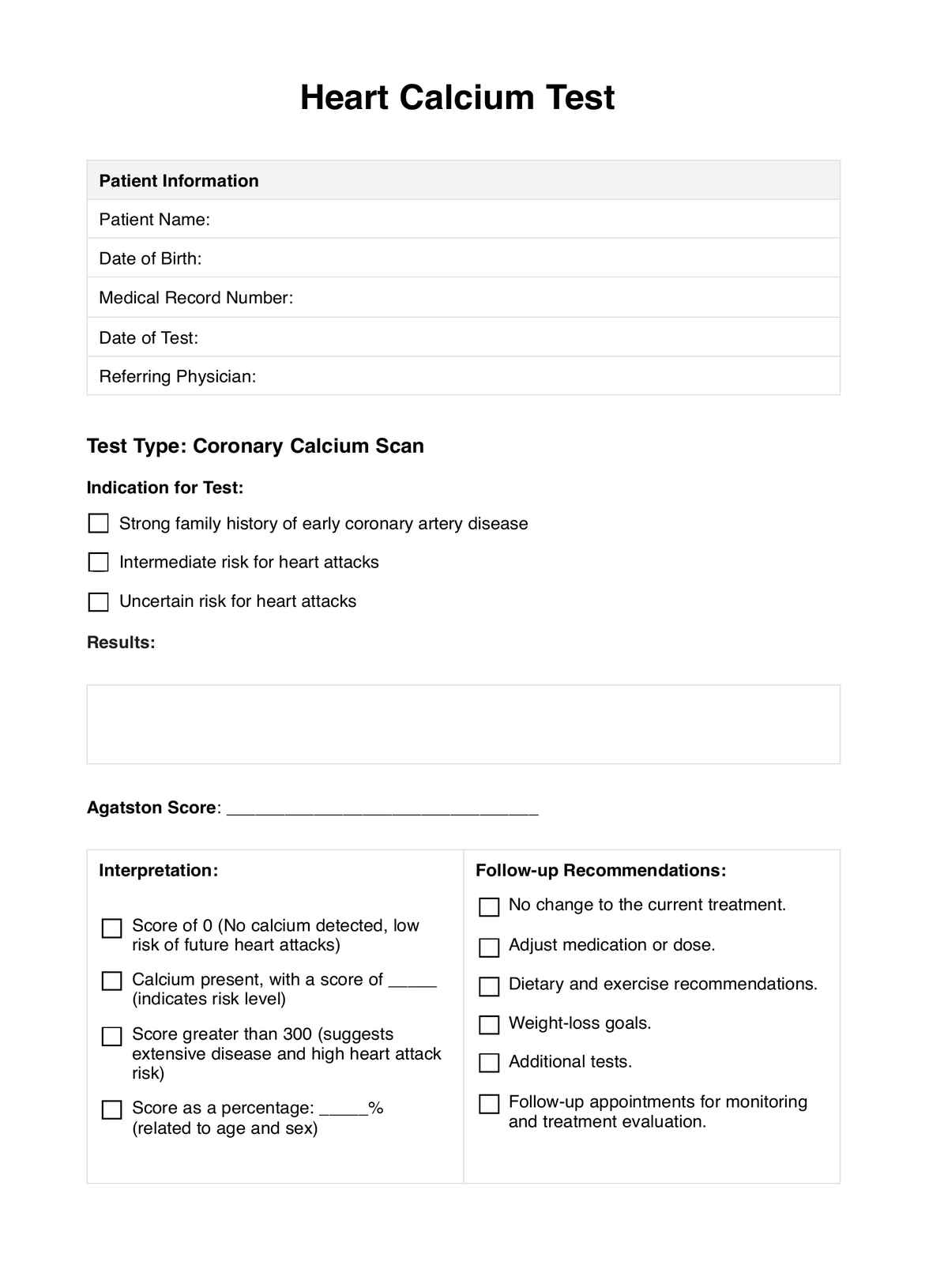Typically, individuals who are at intermediate risk of heart disease or have a family history of coronary artery disease request a Heart Calcium Test.

Curious about Heart Calcium Tests? Learn how this non-invasive scan detects heart disease early and how the Printable Resource aids healthcare.
Typically, individuals who are at intermediate risk of heart disease or have a family history of coronary artery disease request a Heart Calcium Test.
These tests are used when assessing a person's risk of heart disease, especially in cases of uncertain risk or an intermediate risk of heart attacks.
The tests involve a non-invasive CT scan of the heart, which captures images to detect calcium deposits in coronary arteries.
EHR and practice management software
*No credit card required
Free
$0/usd
Unlimited clients
Telehealth
1GB of storage
Client portal text
Automated billing and online payments